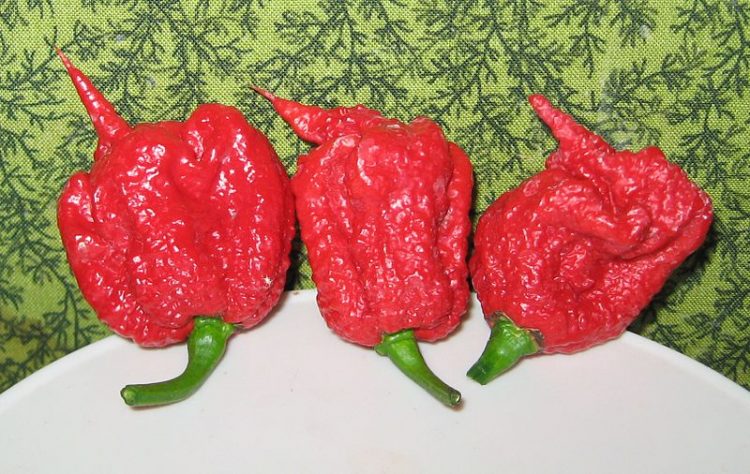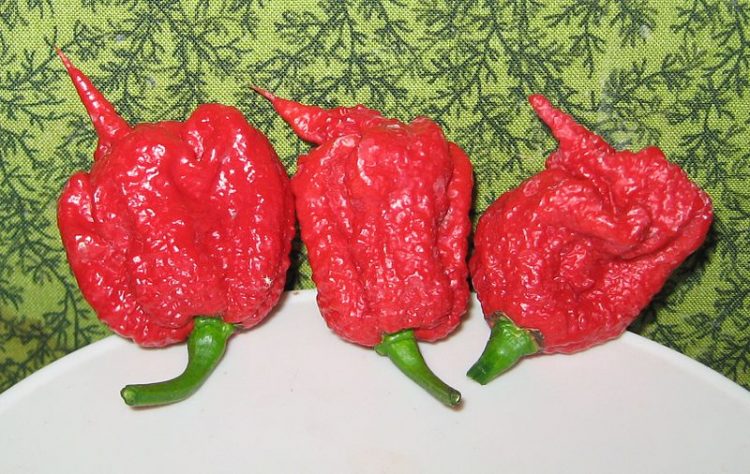Doctors in New York recently reported the case of a 34-year-old man who wound up in the hospital with severe headaches and neck pain after trying to eat a Carolina Reaper during a hot pepper eating competition.
The unnamed man reportedly started dry heaving immediately after sampling a Carolina Reaper pepper. It’s unclear whether he stopped after a few bites or finished the whole thing, but what we do know is that over the following days, he began experiencing intense headaches and neck pains that lasted only a few seconds. At one point, the pain became so hard to bare that he had to be taken to the emergency room.

Photo: Dale Thurber/Wikimedia Commons
Upon hearing about his symptoms, doctors at Bassett Medical Center, in New York, started testing for various neurological conditions, but all results came back negative. However, one cerebral CT scan revealed that several arteries in the man’s brain had constricted and he was diagnosed with reversible cerebral vasoconstriction syndrome (RCVS). This temporary narrowing of the arteries is usually accompanied by thunderclap headaches, and can be caused by certain prescription medication and illegal drugs.
What made this case interesting was that, or the first time ever, reversible cerebral vasoconstriction syndrome was linked to consuming extremely hot peppers. Luckily, the man’s symptoms cleared up on their own and a second CT scan five weeks later showed that his arteries had returned to normal as well.
Most sources still credit the Carolina Reaper as being the hottest pepper in the world, even though Pepper X, developed by the same Smokin’ Ed Currie, is reportedly twice as hot. The Reaper can score around 2.2 million Scoville units, which makes it 400 times hotter than a jalapeno.
This recent case, presented in the prestigious BMJ Case Reports journal, shows that the intense hotness of the Carolina Reaper doesn’t only take a toll on your mouth and stomach, but can actually affect your brain as well.













